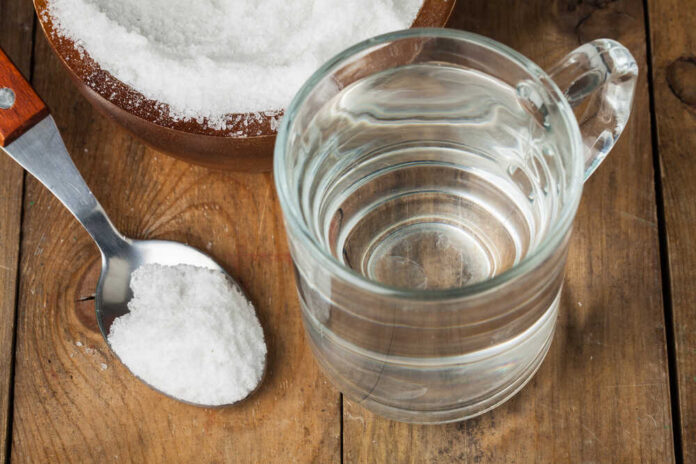
You just finished a grueling workout session, sweat dripping down your forehead, and thirst clawing at your throat.
The obvious next move? Chugging down a big glass of water.
But as you reach for the bottle, a friend mentions something intriguing: “You know, adding a pinch of salt to your water can enhance hydration.”
Could it be true? Could the modest salt shaker hold the key to optimizing how our bodies absorb water?
The Dual Role of Salt: Friend and Foe
First, let’s establish the basics: salt is a compound made of sodium and chloride ions. Sodium is one of the essential electrolytes in the body, vital for various physiological functions including nerve impulse transmission and muscle contraction. Too little sodium, known as hyponatremia, can lead to dizziness, nausea, or even seizures in extreme cases.
But, too much sodium also has its drawbacks. Hypernatremia, or elevated sodium levels, can lead to high blood pressure, cardiovascular issues, and other health complications.
Electrolytes: The Unsung Heroes of Hydration
Electrolytes are ions that conduct electricity when dissolved in water. Common electrolytes include sodium, potassium, and magnesium.
They not only maintain the electric charge across cell membranes but also regulate the balance of water inside and outside cells.
When we sweat, we lose both water and electrolytes, especially sodium. To put it simply, water isn’t the only crucial ingredient to restore the body’s fluid balance.
Salt and Water: A Symbiotic Relationship?
Traditionally, we’ve been advised to limit our salt intake, mainly to control hypertension and reduce cardiovascular risks. However, when it comes to hydration, the narrative becomes more nuanced. Some believe that adding salt to drinking water could potentially enhance the body’s water absorption capacity, leading to better hydration.
How is this even possible?
Salt can help to balance the osmotic pressure between the inside and outside of cells. This balance is essential for the free flow of water in and out of the cells, leading to more effective hydration.
The Science Weighs In
Studies have examined this salt-water relationship in athletic contexts.
A 2015 study found that athletes who consumed salt tablets with water during a half-ironman triathlon had a lower rate of performance decline and dehydration compared to those who only drank water.
However, it’s crucial to point out that athletes are a specialized population whose hydration needs can differ dramatically from those of the general public. Conclusive evidence that salt in water benefits the average individual’s hydration is still lacking.
The Saline Solution: For Whom?
So, should you begin a ritual of adding a sprinkle of salt to your daily aqua? The jury is still out.
For athletes or those engaged in intense physical activities, it may be worth exploring. For the general population, particularly those with hypertension or kidney issues, caution should be exercised.
Proceed with Caution and Balance
The relationship between salt and hydration is not a one-size-fits-all equation. It’s a delicate balance requiring an understanding of one’s body, lifestyle, and specific health needs.
The idea that adding salt to your drinking water could enhance hydration is both captivating and contentious. It beckons for further research, both in scientific and everyday contexts.
But until we reach a solid conclusion, maybe consider the salt shaker in the same light as a precious spice—a little can flavor the dish, but too much can spoil it entirely.






















